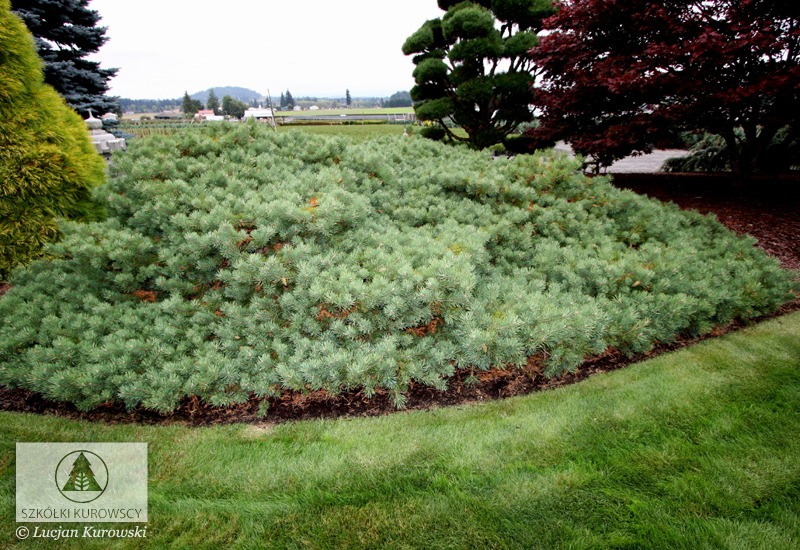
Pinus sylvestris 'Hillside Creeper' Sosna pospolita 'Hillside Creeper'
Description A carpeting form of Scots pine, this selection tends to become layered over time, but it rarely grows over one foot tall. It will spread out and creep along the ground to 8' or more in time, so it is particularly effective on a bank or hillside. Green to bluish-green needles take on a yellow-green hue in winter.
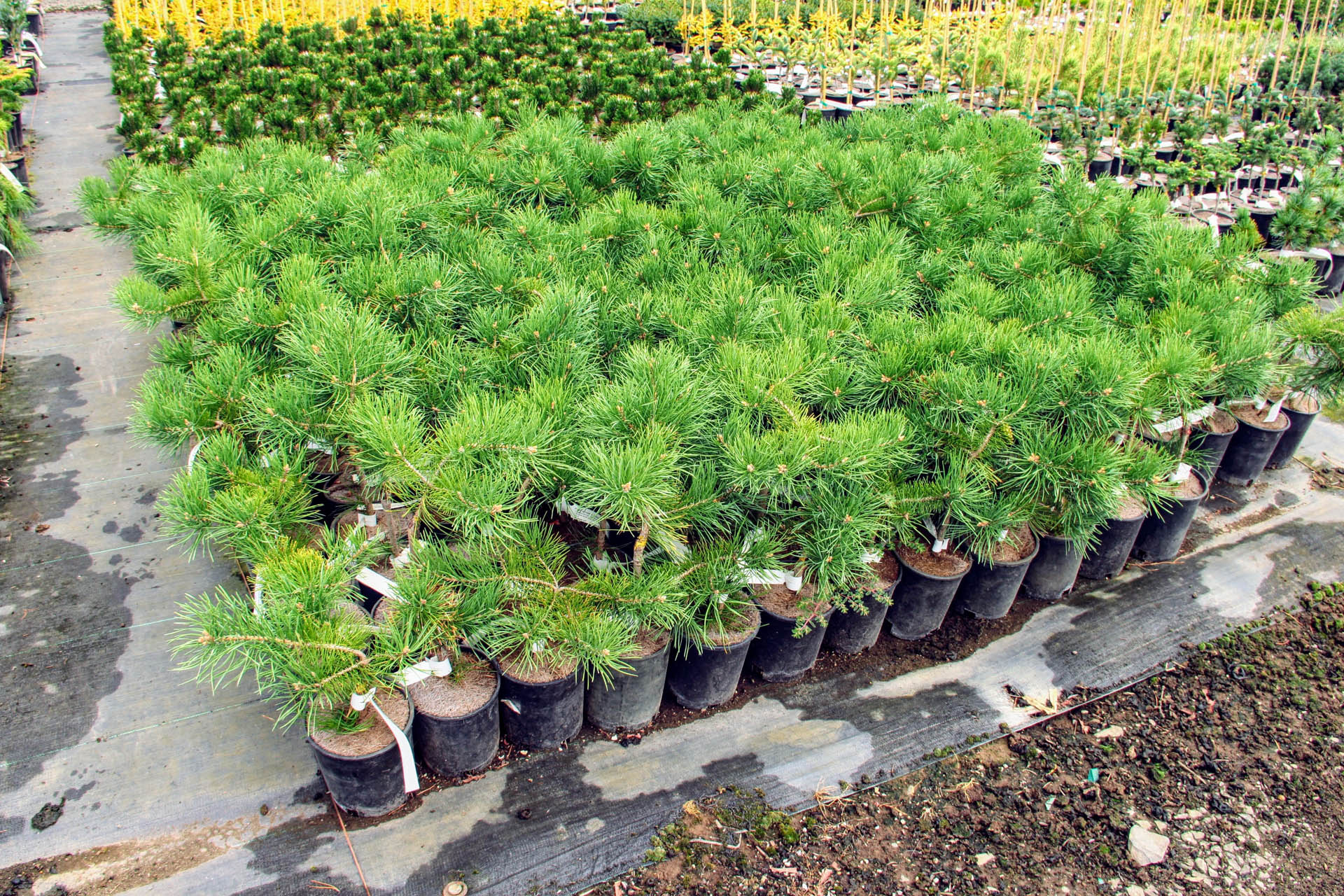
Pinus sylvestris 'Hillside Creeper' Scots Pine Conifer Kingdom
This Item: Pinus sylvestris 'Hillside Creeper' Creeping Scot's Pine $50.00 - $450.00 Choose Options Description Pinus sylvestris 'Hillside Creeper' A creeping cultivar of Scotch Pine. A nice grouncover that spreads out and forms flat layered branches covered with thick, green needles.
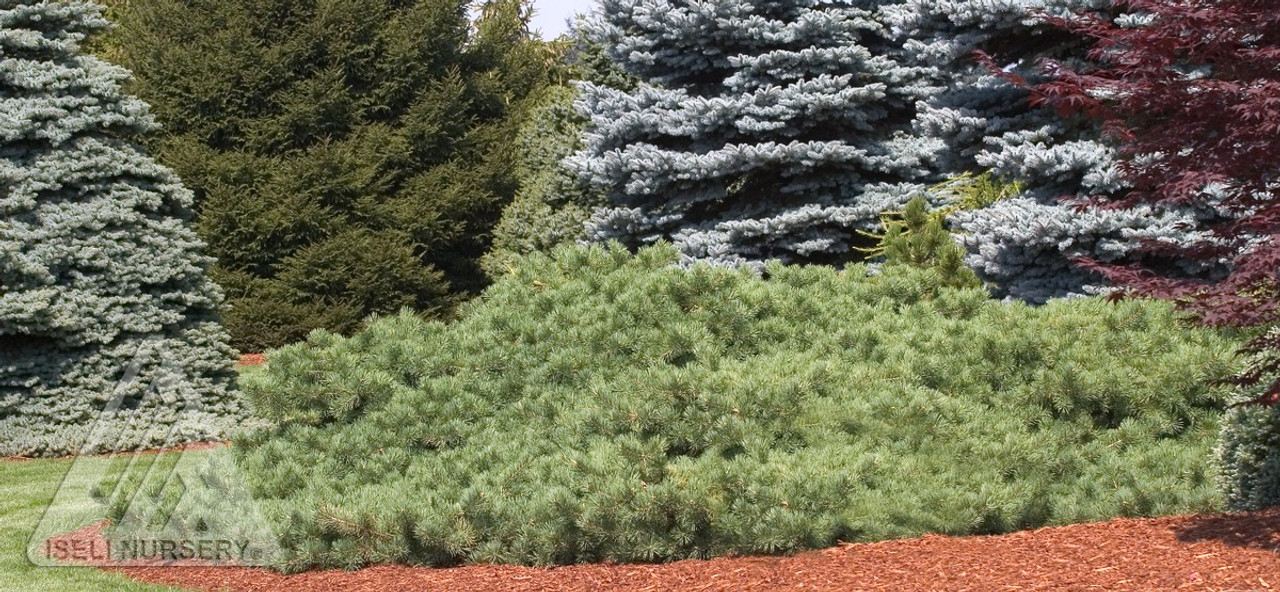
Pinus sylvestris ' Hillside Creeper ' Creeping Scot's Pine Kigi Nursery
About Pinus Sylvestris 'Hillside Creeper' Scotch pine 'Hillside Creeper' is an evergreen conifer with a medium-sized, upright growth habit. It has bright green needles that grow in pairs on short, stiff branches. The needles have a sharp pointed tip and are curved slightly inward. This hardy tree has a medium growth rate and is tolerant of.

Pinus sylvestris Hillside Creeper 3 gal Scots Pine Cornell Farm
Discovered in 1865. 'Hillside Creeper' - low growing creeping form, branches more or less horizontal, to 2 ft (0.6 m) high and 6 ft (1.8 m) wide. Upright 'Fastigiata' - strict, columnar habit, to 50 ft (15 m) high, stiff upright branches, may become "untidy and bare" with age, some consider 'Fastigiata Drath' an improved upright form.

Pinus sylvestris ‘Hillside Creeper’ ( Hillside Creeper Pine) Stonepocket Know What You Grow
PINUS sylvestris 'Hillside Creeper' - Useful ground cover form with thick shiny green needles. Height: 2-3′ Spread: 10-15′ Zone: 3. return to products. Home; About Klyn Nurseries Inc. Online Order; Job Opportunities; Contact / Directions; Klyn Nurseries Inc 3322 S Ridge Rd, Perry, OH 44081.

Pinus sylvestris 'Hillside Creeper', WaldKiefer 'Hillside Creeper' Baumschule Ley
Quick Overview. Pinus sylvestris 'Hillside Creeper' is a dwarf, prostrate, low growing, spreading form of the Scots pine. It forms a wide mat and has a dense habit which is ideal for rock gardens or raised beds. This variety has needle like light green leaves turning yellow-green in Winter. Female green cones ripen to grey or reddish-brown.
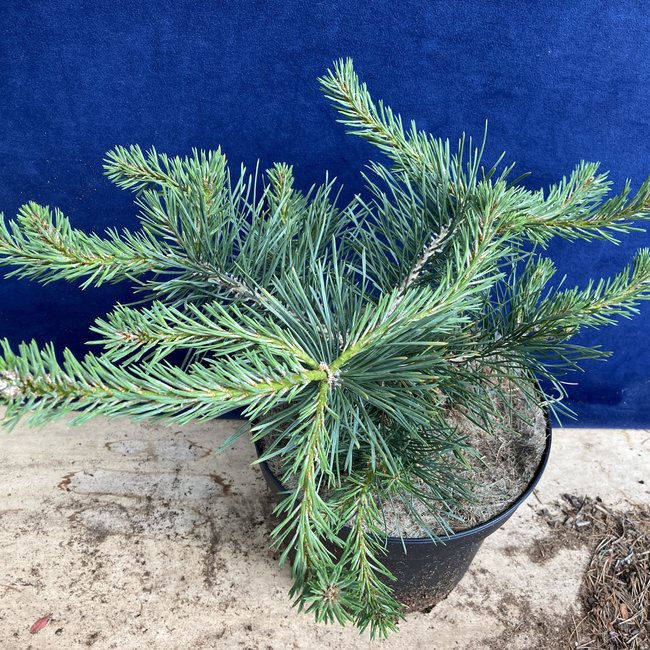
Pinus sylvestris 'Hillside Creeper' Herman Geers
Pinus sylvestris "Hillside Creeper' Planted 2021 This pine acts like a ground cover, growing no more than 1 to 1 ½ feet tall, but spread to over 10 feet wide. It is very adaptable to multiple soil types. It has a fast growth rate when young but slows once older. Leaf

Spreading, Creeping Scotch Pine 'Hillside Creeper' (Pinus sylvestris) My Garden Life
Plant Type: Shrub 492 Deciduous / Evergreen: Evergreen 250 View More Details Additional Information 'Hillside Creeper' is a low-growing, spreading evergreen that can be used as a groundcover. Tolerant of fairly dry soils, but not a good specimen in shade or on wet soils. Plant Photo Gallery Bark Foliage and Buds Habit
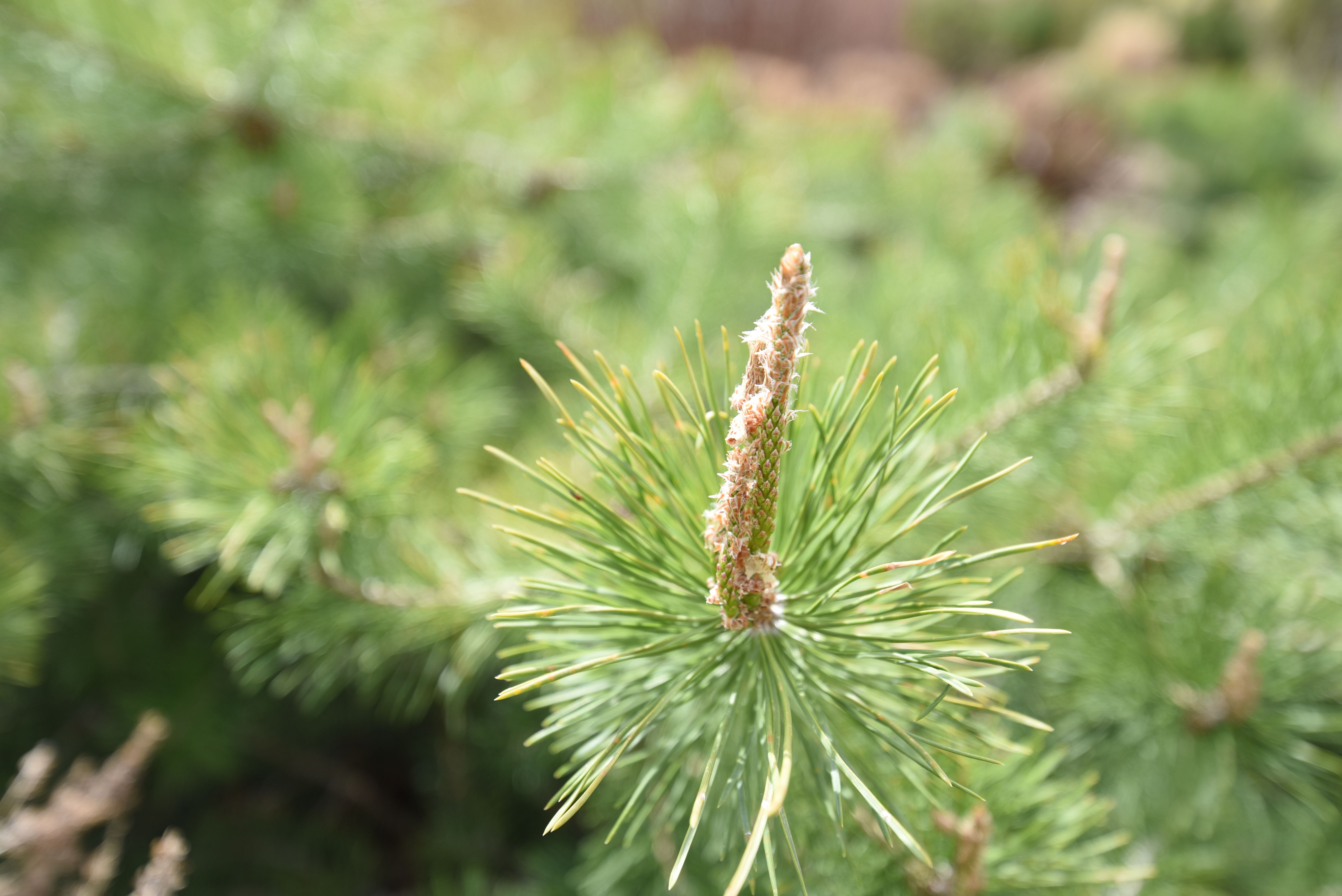
Pinus Sylvestris Hillside Creeper
Pinus sylvestris, commonly called Scots pine, is a fast-growing, conical to columnar, medium sized conifer with distinctive flaking orange/red-brown bark. It typically grows 30-60' tall in cultivation, but may reach 100' in the wild. It develops an open-rounded, irregular crown as it matures.

Pinus sylvestris 'Hillside Creeper' / Hillside Creeper Scots pine Conifer Trinomial American
A very rugged, hardy and attractive Scotch Pine with an unusual ground-hugging and spreading habit, 'Hillside Creeper' is a fast grower adding 12 inches in width or more in width per year. Height is a different story. Growing low to the ground, it will slowly begin to mound in layers upon itself reaching maybe 2 feet at most over the long term.

Buy Pinus sylvestris 'Hillside Creeper' Dwarf Scots Pine — Mr Maple │ Buy Japanese Maple Trees
Pinus sylvestris 'Hillside Creeper' Common name: Hillside Creeper Scots Pine Pronunciation: PI-nus sil-VES-tris Family: Pinaceae Genus: Pinus Type: Conifer Native to (or naturalized in) Oregon: No Low growing creeping form, branches more or less horizontal.
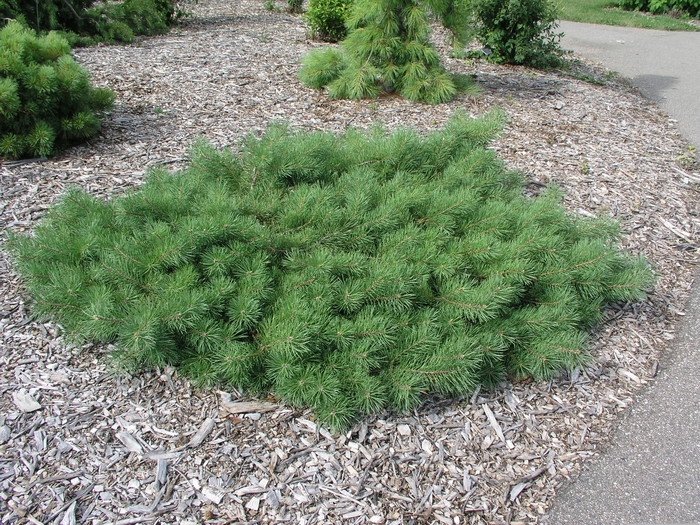
Pinus sylvestris 'Hillside Creeper' Trailing Scotch Pine Garden Center Marketing
'Hillside Creeper' is a vigorous, prostrate, spreading, coniferous, evergreen shrub with twisted, needle-like, light green leaves turning yellow-green in winter. Oval to conical, green female cones ripen to grey or reddish-brown and may persist on the tree for years. Season of interest Height and spread Metric | Imperial Where to grow Soil type

Buy Hillside Creeper Scotch Pine (Pinus sylvestris) FREE SHIPPING Wilson Bros Gardens 6
Hillside Creeper Scotch Pine is a dwarf conifer which is primarily valued in the garden for its broadly spreading habit of growth. It has rich green evergreen foliage. The needles remain green throughout the winter. Landscape Attributes. Hillside Creeper Scotch Pine is a multi-stemmed evergreen shrub with a ground-hugging habit of growth.

Scotch Pine (Pinus sylvestris 'Hillside Creeper')
Scientific name: Pinus sylvestris "Hillside Creeper" Description A strong-growing, prostrate ground covering pine creating a beautiful spreading and undulating look. Morphology: This Scotch pine cultivar is a fast-growing (12"+ per year), dense, spreading, needled evergreen.
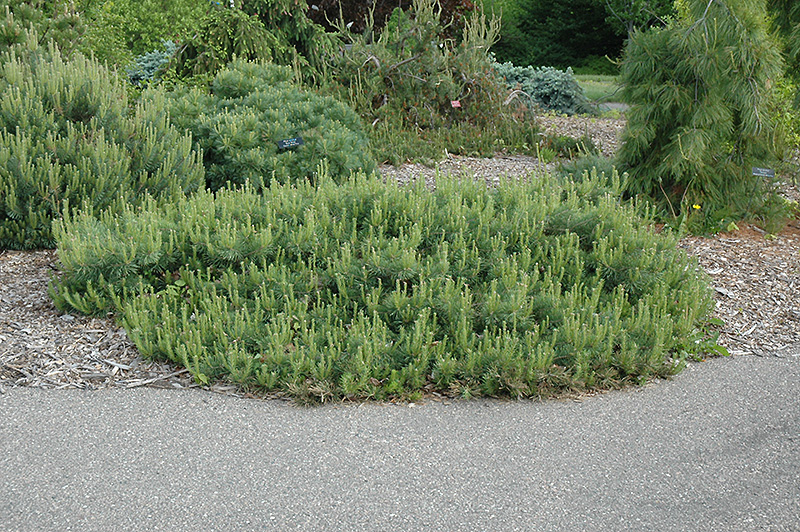
Hillside Creeper Scotch Pine (Pinus sylvestris 'Hillside Creeper') in Inver Grove Heights
Scots Pine (Pinus sylvestris 'Hillside Creeper'): 'Hillside Creeper' is a fast-growing, prostrate Scots pine. It can grow laterally up to 12 inches in a year but growth rate slows considerably as the plant ages. In 10 years it typically attains 2 feet in height and 8 feet in width.
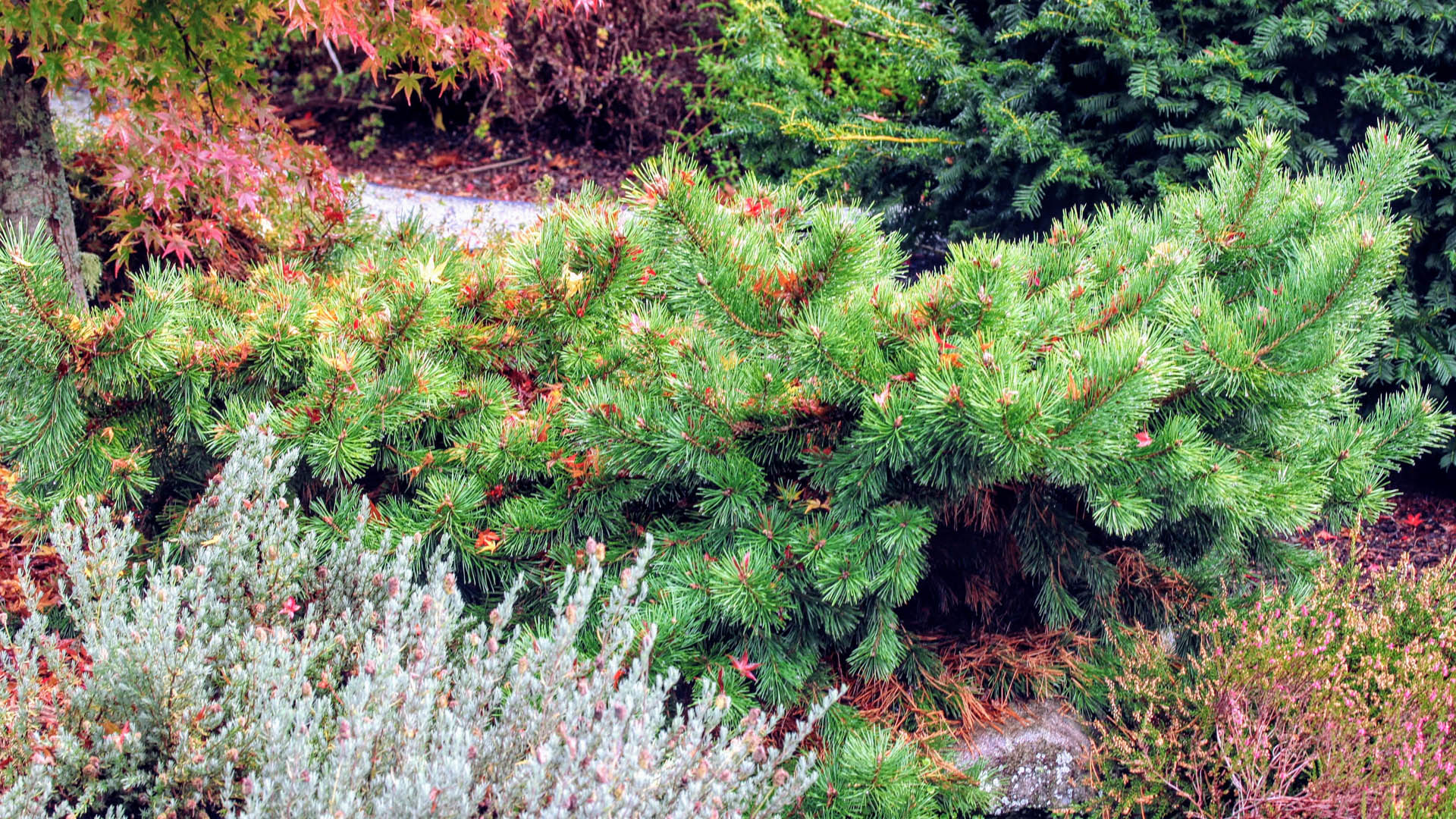
Pinus sylvestris 'Hillside Creeper' Scots Pine Conifer Kingdom
Features Low, creeping mass of evergreen foliage is a durable selection for cold climates. Tolerant of just about any well-drained soil and urban conditions. Creates a carefree groundcover for hillsides or irregular terrain where formal plantings would be difficult to maintain.